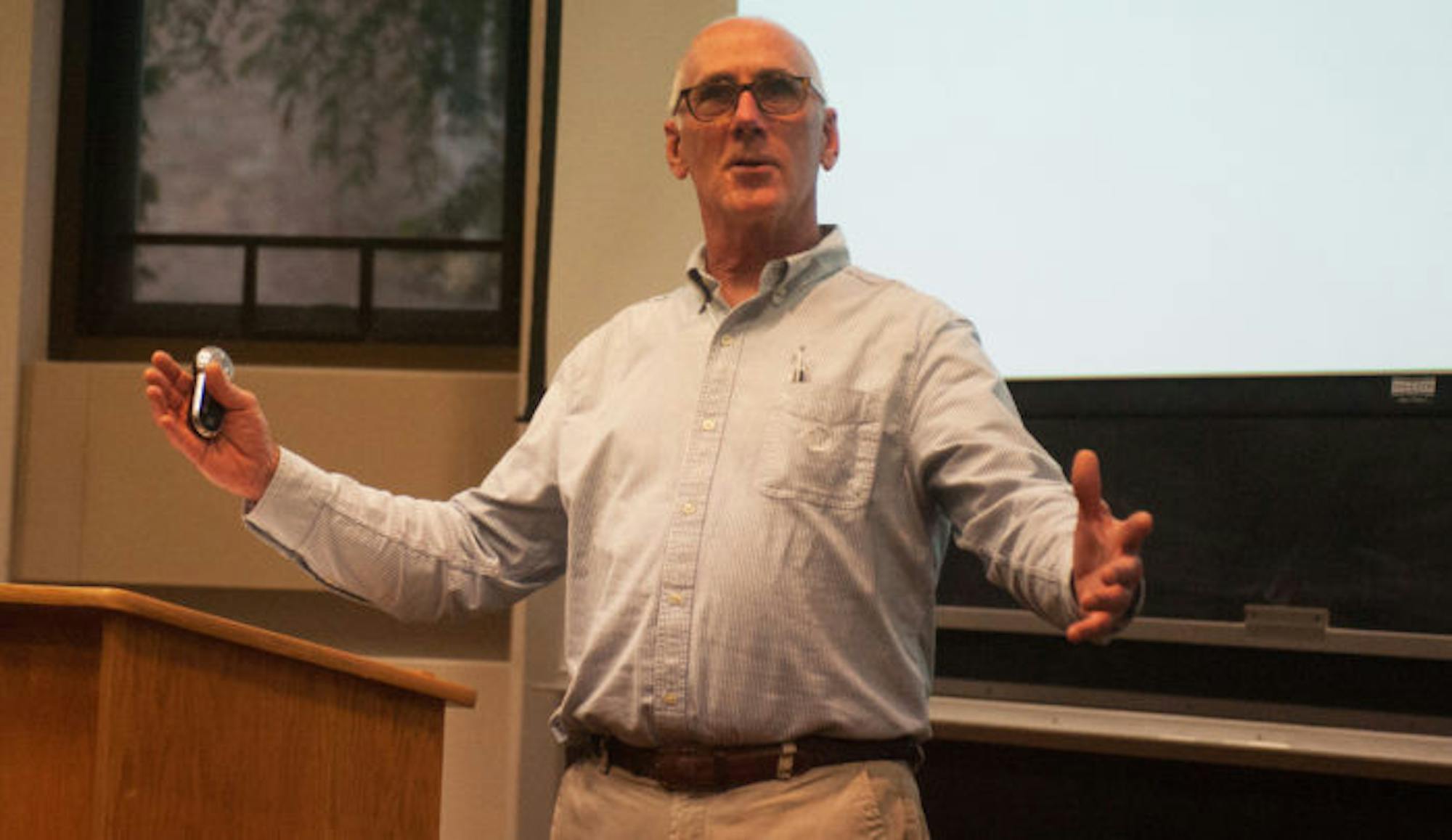Political Science professor and associate director of the Environmental Change Initiative Patrick Regan delivered a lecture Monday exploring the complexities surrounding climate change in America.
Regan began his lecture by speaking about the level at which climate change is evident, accepted and supported by science. 
“We’ve known about climate change for 35 to 40 years,” Regan said. “[In] the National Climate Assessment that was released in 2017 under the auspices of President Donald Trump, the second paragraph of the executive summary says the climate is warming at unprecedented levels, warmer than the past thousands of years, and the third paragraph states humans are the primary cause of global warming.”
Regan also referred to an analysis from the Department of Defense when discussing the potentially severe effects climate change.
“The Department of Defenses tells us that by 2060, 600,000 square kilometers of currently arable land on the African continent will go offline. This is on the most food and water challenged continent we have,” Regan said.
Regan said resistance to combating climate change stems from the influence of private interests on both an individual and national level.
“There is some tension here between the individual and the collective,” he said. “Everybody who drives an SUV or exfoliates for 30 minutes [in the shower] is perfectly rational doing so at the individual level, our problem is at the collective.”
Individual contributions to climate change are minuscule, Regan said. This fact makes it easy for individuals to rationalize behaviors that are in their own interest, like driving a big car or taking a long shower. However this rationalization dooms the hope of spontaneous collective action to combat climate change, Regan explained.
The situation is not hopeless though, Regan said, but solutions lie in policy rather than unmotivated action by the general public. He pointed to the European Union as an example.
“U.S. people produce about 16 metric tons per person of [carbon],” he said. “The European Union, which is like us in almost all the demographic conditions you can come up with, produces about 8 metric tons per person.”
However, policy change aimed at reducing emissions and fossil fuels is complicated because people in Congress are motivated by special interests — namely, getting re-elected, Regan said. They do not have to worry about the effects of climate change in 40 or 50 years when their focus is on winning the next election cycle, Regan said.
“Because in two years you’ve got to go back and get elected again, if you throw away those jobs, you’re not going to get elected,” Regan said.
Regan noted that despite the issue’s complexity, the fact remains that climate change is a real issue that needs to be addressed and can no longer be treated as a problem to be solved down the road.
“If projections are close, then consequences will be grave,” Regan said. “The U.S. National Climate Assessment, this is Donald Trump's crew, they say that if we’re not on track by 2030 we probably can’t get there.”
Regan said everyone should conduct themselves in an environmentally-friendly way.
“We know the cause, we know the consequences, and we actually know the solutions,” he said. “So why don't we act like it?”













